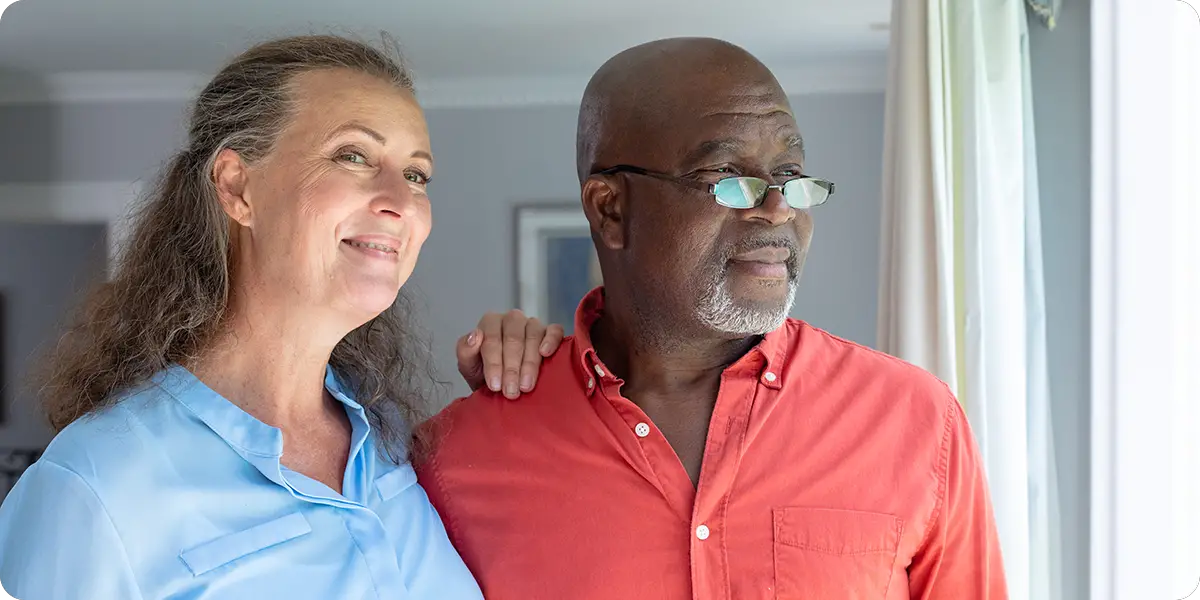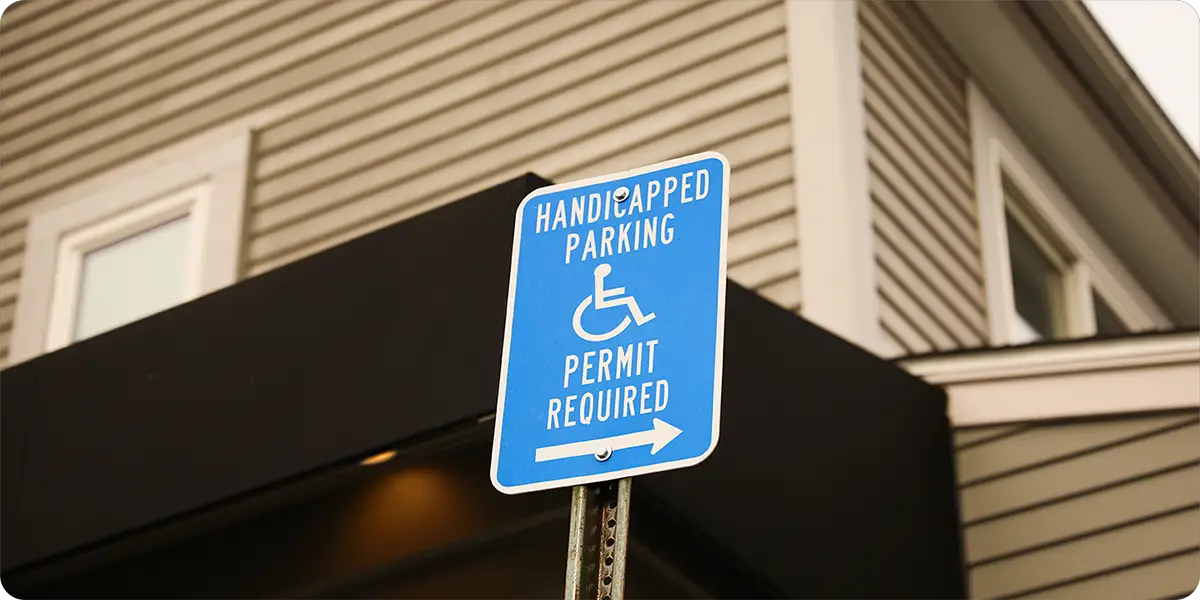
Seniors make up a large portion of those who need affordable rental housing. There are many types of housing programs nationwide that assist seniors who are age 62 or older, and also “Near-Elderly” renters who are age 55 or older. This assistance includes low-income housing for seniors, as well as accommodations and services.
This easy-to-read guide has all the information that seniors with low incomes need to know to find affordable housing with features and services for independent living.
If you or someone you know is looking for affordable housing for senior renters, start by exploring the available housing programs:
The Section 202 Supportive Housing for the Elderly program provides affordable apartment communities specifically for seniors. It is the only federal housing program devoted solely to senior renters with low incomes.
The basic requirements for the Section 202 program are:
For more information about this program, read our step-by-step guide: What is Section 202 Supportive Housing for the Elderly?
Although Section 202 is the only federal low-income housing program specifically for senior renters, there are other programs that allow some properties to be reserved for senior residents.
Properties funded through the following programs may be reserved for seniors:
Public Housing
The Public Housing program is funded by HUD and managed by locally controlled Public Housing Agencies (or housing authorities). These properties receive an operating subsidy that allows tenants to pay 30% of their adjusted monthly income for rent.
For more information, read our step-by-step-guide: What is the Public Housing Program?
Section 8 Project-Based Rental Assistance
Section 8 Project-Based Rental Assistance (PBRA) is managed by private owners, or sometimes housing authorities. Tenants pay 30% of their adjusted monthly income for rent and the program pays the owners the rest of the rent.
For more information, read our step-by-step guide: What is the Section 8 Project-Based Rental Assistance Program?
Low-Income Housing Tax Credit Program
The Low-Income Housing Tax Credit (LIHTC) program gives tax credits to investors who provide capital for rental properties serving low-income households. These properties offer reduced rents affordable to low-income households in the area. In many cases, LIHTC properties include other resources, such as Section 8 Project-Based Rental Assistance, that make them affordable to those with the lowest incomes.
For more information, read our step-by-step guide: What is the Low-Income Housing Tax Credit Program?
Section 515 Rural Rental Housing
Section 515 is a program run by the U.S. Department of Agriculture (USDA) that provides low-interest loans to developers of rental properties serving low-income households in rural areas. These properties often have other federal subsidies, such as Section 521 Rural Rental Assistance or Section 8 Project-Based Rental Assistance.
Many Section 515 properties are only for disabled and senior tenants. You can check with the property’s management to see if it is designated for disabled and senior tenants. You can also ask about accessible units and what rental assistance is available.

Many waiting lists have preferences. Applicants who qualify for waiting list preferences will receive assistance before applicants who do not. Applicants who do not qualify for preferences will usually have a longer wait to receive assistance.
A preference for senior applicants is one of the most commonly listed preferences for affordable housing. However, there are still many waiting lists without a senior preference, or any preferences at all.
It is important to know that preferences are not requirements. Anyone may still apply, even if they do not qualify for any preferences.
Many seniors have physical limitations, such as impaired vision, hearing, or mobility. Affordable housing providers who receive federal funds must make reasonable accommodations to ensure that all people, regardless of disability, can apply for their programs and have full enjoyment of their units if selected.
A reasonable accommodation is a change in a rule, policy, practice, or service that may be necessary to allow a disabled person the equal opportunity to use and enjoy the dwelling.
Under federal civil rights laws, a person with disabilities is one who:
There are different types of accommodations for low-income seniors with disabilities for a variety of needs.
Applicant Accommodations
Reasonable accommodations must be provided for disabled persons in the application process.
This also applies to elderly persons who may have difficulty reading the application or other documents.
Application forms should have information about how to request assistance in completing the application.
Reasonable accommodations could include allowing a service animal to be present for applicant interviews, assistance completing forms, or translation services for persons with Limited English Proficiency.
Unit and Property Accommodations
Seniors with disabilities can also request reasonable accommodations in public spaces and in their units. Some examples include a dedicated handicapped parking space, a lower mailbox for someone in a wheelchair, adding grab bars in a bathroom, or allowing a service animal in a building that does not allow pets.
For buildings first occupied after March 1991 with four or more units and an elevator, federal accessibility requirements provide a number of benefits to seniors (even if the property is not restricted solely to senior residents):
Caregiver Accommodations
HUD allows some additional services in federally assisted housing for tenants who have difficulty with one or more daily life activities. HUD regulations allow a live-in aide or caregiver to assist tenants with these needs, promoting an assisted living environment.
HUD defines a live-in aide as someone who lives with a disabled person and is essential to the care and wellbeing of the person. They are not obligated to support the person with disabilities and would not be living in the unit except to provide the necessary supportive services.
Caregivers may provide both physical assistance, such as help with bathing or getting in and out of a wheelchair, and cognitive assistance, such as reminders to take medications or supervising meal preparation.
A senior with a demonstrated need for 24-hour assistance can qualify for a larger unit to provide quarters for a caregiver. For example, a single senior would normally qualify for either a studio or one-bedroom apartment. If they qualify for a live-in aide, they are eligible for a two-bedroom unit.
Live-in aides do not count as part of the household for calculating income eligibility. They can be removed or evicted by the PHA the same as tenants for infractions, such as drug- or criminal-related activity. Live-in aides also do not have a right to remain in the unit after the disabled tenant has moved out.
HUD also oversees the Assisted Living Conversion Program (ALCP). This program provides grants to private owners of affordable housing developments to convert some or all of the units in a given development into an assisted living facility or service-enriched housing for frail seniors.
These facilities are designed to accommodate frail seniors who can live independently, but need assistance with activities of daily living. These include eating, bathing, grooming, dressing and home management activities. The services offered often include personal care, transportation, congregate meals, housekeeping and laundry service. They are similar to Section 202 properties, but with a greater array of services.

HUD also provides support for other services that help seniors living in federally subsidized housing. In addition, Area Agencies on Aging assist low-income seniors with a variety of needs in most communities nationwide.
Congregate Housing Services Program
HUD’s Congregate Housing Services Program (CHSP) funds meals and other supportive services for frail elderly and non-elderly disabled residents of federally subsidized housing. It also supports meal delivery and non-medical supportive services that help residents maintain independent living.
Properties must offer at least one hot meal per day.
Many Public Housing, Section 8 Project-Based Rental Assistance, Section 202 and Section 515 properties dedicated to serving seniors and disabled residents participate in this program. You can check with the owner or property manager to see if they receive CHSP funds and what services are provided.
Service Coordinator Grant Program
Owners of HUD-assisted multifamily housing designed for the elderly can participate in the Service Coordinator Grant Program. These grants pay for service coordinators who help connect tenants with social and health services provided by other organizations in the area.
Service coordinators do not provide resident care, but do help connect residents to health and wellness services, transportation, meal services and other community resources.
Most of these properties receive either Section 202 rental assistance or Section 8 Project-Based Rental Assistance, so they are affordable to seniors with the lowest incomes. You can ask the owner or property manager if there is a service coordinator and what services are available for residents.
Area Agency on Aging
If you are a senior looking for housing or trying to find supportive services, the local Area Agency on Aging (AAA) can provide referrals and other assistance.
AAAs were established under the 1973 Older Americans Act to respond to the needs of those 60 years old and older in every community. AAAs provide direct services and coordinate with other local service organizations to meet senior housing, health and other needs.
AAAs act as resource centers and provide service referrals. They often oversee the local Meals on Wheels program and support home health care programs.
They have five core services either provided directly or in partnership with other agencies: nutrition, health and wellness, caregivers, elder rights and supportive services.
You can get contact information for your local Area Agency on Aging through the National Association of Area Agencies on Aging website.
If you're a homeless veteran, contact your VA Medical Center.
You may have an opportunity to apply for a VASH voucher, which is a Section 8 voucher for homeless veterans.Takesha Powell says:
"Affordable Housing Online is a great resource that provides a lot of helpful links to get low-income and affordable housing."